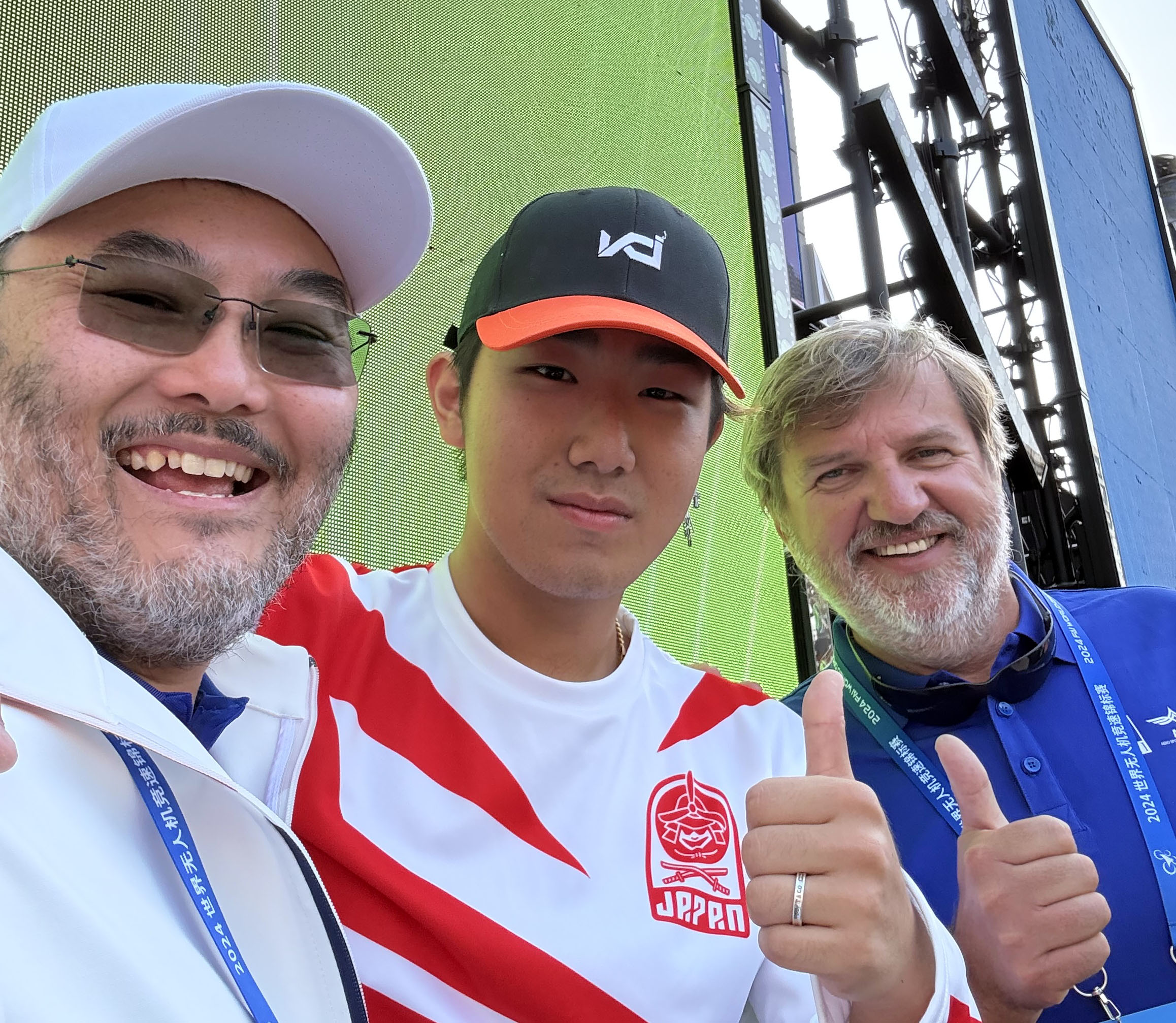Judging: how drone racing competitions are run

With its fast-paced and low-flying action, drone racing is exciting to follow. It also makes it challenging for the judges tasked with ensuring everything is fair. This is how they do it.
When the World Games hosts drone racing in Chengdu this August it’s not just the drone pilots who need to be on their A game. For the sport’s judges, it’s also extremely demanding as they try to ensure everything is fair.
The first criteria for ensuring that all athletes start on a level playing field is to check that their drones, most of which are hand-made, meet the specifications in the rulebook, say Eric Li-Koo and Sotir Lazarkov, FAI judges from the UK and Bulgaria, respectively. This defines constraints on size, weight, permitted video frequencies, maximum video transmission power, and even LED colours.
An athlete is permitted a maximum of three drones and these are checked by judges during registration and only drones marked compliant are allowed on the racetrack. “This process also gives competitors an opportunity to calm their nerves and collect their thoughts (and, on occasion, to fetch some equipment they might have forgotten at the last minute!, so that they can perform at their best,” say Li-Koo and Lazarkov.
Each race is held over a fixed number of laps within a maximum of three minutes, but is often quicker because drones are evolving at such a rapid rate. “These might be the shortest three minutes you will ever encounter, but they also demand the highest amount of effort from the judging panel,” say Li-Koo and Lazarkov.
There are various judges:
The Starting Judge or starter is responsible for starting and stopping the race, as well as the overall safety of the track. “They can be easily recognised by their distinctive call to ‘Arm Your Quads' at the beginning of each race, but they will also delay or even stop a race if a safety hazard occurs.
Pilot Judges are assigned to each pilot and monitor each race by watching the same video feed as their pilot. “They look out for rule violations such as missed obstacles, unauthorised shortcuts and deviations from the track, all of which can invalidate a lap,” say Li-Koo and Lazarkov. The electronic timing system can accurately record lap times with millisecond precision, but only a Pilot Judge can determine if that lap was valid.
In addition, there is a Supervisor Judge who oversees the overall event and provides guidance to the Pilot Judges where necessary, supporting their decisions when rulings must be made. In case of disputes or official errors, they review the video footage from the race to uphold or dismiss these disputes, and ensure that all pilots are judged fairly and consistently.
“All judges adhere to the current FAI Sporting Code and work diligently throughout the competition to keep the event running smooth, fair and in strict accordance with the rules,” say the two judges.
In rare situations and a pilot does not accept the judges' decision they can raise an official protest (which must be in writing and, in the case of Category 1 events with National teams, submitted by the Team Manager alongside a protest fee). This is when the FAI Jury, which comprises three extremely experienced officials with a deep understanding of how to apply the rules, is called upon to arbitrate and provide a ruling.
The jury considers all written arguments submitted by the pilot/team and conducts an investigation according to the FAI rules before voting on an official response. “The FAI Jury President is also required to submit a signed report detailing these outcomes to the Organisers and the FAI/CIAM, which further upholds the FAI's principles of fairness,” add Li-Koo and Lazarkov.

Eric Li-Koo, Yuki Hashimoto (winner of the 2024 FAI World Drone Racing Championships), Sotir Lazarkov
About The World Games
The World Games: 7-17 August 2025
The World Games drone racing event: 13-16 August 2025
FAI will provide extensive media coverage of the drone racing event.
The World Games is a prestigious multi-sport event organised by the International World Games Association (IWGA) under the patronage of the International Olympic Committee (IOC).
Held every four years, The World Games showcases the best athletes in non-Olympic sports, providing a global platform for emerging and innovative disciplines. Air Sports have been part of The World Games since 1997.
Top picture: Judges use tablets to see the races real-time
